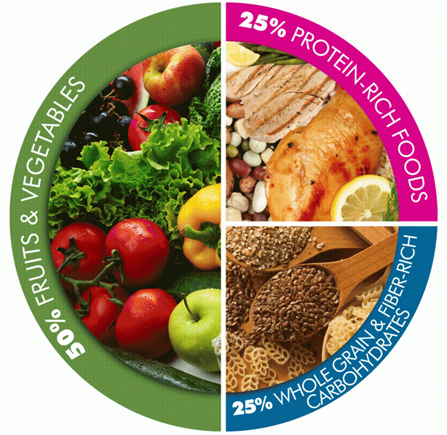
Eating a healthy, balanced diet is the cornerstone of good health and well-being. It provides the necessary nutrients for energy, growth, and repair in our bodies. In this article, we will explore ten essential rules for healthy eating to help you make informed choices about your diet and lifestyle.
Rule 1: Understand Portion Control
Portion control plays a crucial role in maintaining a healthy diet. It is important to be mindful of the amount of food we eat to avoid overeating. One simple tip for measuring portion sizes is to use your hand as a guide:
- Palm = protein portion
- Fist = fruit
- Cupped hand = carbs
- Thumb = fats
Rule 2: Fill Half Your Plate with Fruits and Vegetables
Fruits and vegetables are packed with essential vitamins, minerals, and fiber that are crucial for overall health. They help reduce the risk of chronic diseases and aid in digestion. Aim to fill half of your plate with colorful fruits and vegetables at every meal.

Rule 3: Choose Whole Grains
Whole grains are a rich source of fiber, vitamins, and minerals. They are less processed and more nutritious compared to refined grains. Choose whole grain options such as whole wheat bread, brown rice, quinoa, and oats for better health outcomes.
Rule 4: Include Lean Proteins
Proteins are the building blocks of our bodies and are essential for growth and repair. Opt for lean protein sources like chicken, fish, tofu, and legumes to support muscle health and keep you feeling full for longer.

Rule 5: Limit Added Sugars
Consuming too much added sugar can lead to various health issues such as obesity, diabetes, and heart disease. Be mindful of sugar content in processed foods and drinks, and opt for natural sweeteners like fruits to satisfy your cravings.
Rule 6: Practice Mindful Eating
Mindful eating involves paying attention to the taste, smell, and texture of food. It helps prevent overeating and promotes a healthier relationship with food. Take your time to savor each bite, eat slowly, and avoid distractions while eating.
Rule 7: Drink Plenty of Water
Staying hydrated is essential for proper bodily functions, including digestion, circulation, and temperature regulation. Aim to drink at least 8-10 glasses of water per day and limit sugary beverages like soda and energy drinks.
Rule 8: Watch Your Sodium Intake
High sodium intake is linked to high blood pressure and cardiovascular diseases. Be mindful of salt content in packaged foods and use herbs, spices, and lemon juice to enhance flavor instead of relying on salt.

Rule 9: Plan Ahead and Meal Prep
Meal planning and preparation can help you make healthier food choices throughout the week. Set aside some time to plan balanced meals and snacks, shop for ingredients, and prepare meals in advance to avoid impulsive and unhealthy eating habits.
Rule 10: Listen to Your Body
Tuning into your body's hunger and fullness cues is essential for maintaining a healthy weight and balanced diet. Eat when you're hungry, stop when you're full, and be mindful of emotional eating triggers to foster a positive relationship with food.
Conclusion
Incorporating these ten essential rules for healthy eating into your daily routine can have a significant impact on your overall health and well-being. Remember to practice portion control, focus on whole foods, and listen to your body's needs to achieve a balanced and nutritious diet. Start implementing these rules today to embark on a journey towards a healthier lifestyle.
FAQs
Q: Why is portion control important in a healthy diet?
A: Portion control helps prevent overeating and ensures a balanced intake of nutrients.
Q: How can I incorporate more fruits and vegetables into my diet?
A: Aim to fill half of your plate with colorful fruits and vegetables at every meal.
Q: What are the benefits of choosing whole grains over refined grains?
A: Whole grains are rich in fiber, vitamins, and minerals, providing more nutrients compared to refined grains.
Q: What are some lean protein sources that I can include in my diet?
A: Opt for lean protein sources like chicken, fish, tofu, and legumes for muscle health and satiety.
Q: How can mindful eating help improve my relationship with food?
A: Mindful eating promotes awareness of taste and texture, preventing overeating and fostering healthier eating habits.
Q: How much water should I aim to drink each day for optimal hydration?
A: Aim to drink at least 8-10 glasses of water per day to stay hydrated.
Q: What are some strategies to reduce sodium intake in my diet?
A: Be mindful of salt content in packaged foods and use herbs, spices, and lemon juice for flavor instead of salt.
Q: How can meal planning and preparation help me make healthier food choices?
A: Meal planning and prep can help you avoid impulsive eating and ensure balanced, nutritious meals throughout the week.
Q: Why is it important to listen to your body's hunger and fullness cues?
A: Tuning into your body's signals helps maintain a healthy weight and promotes a positive relationship with food.


0 Comments